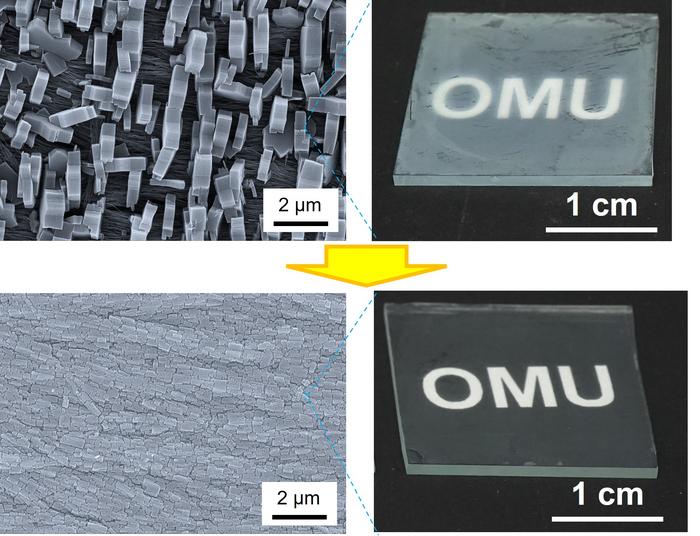Table salt and refined sugar look white to our eyes, but that is only because their individual colorless crystals scatter visible light. This feature of crystals is not always desirable when it comes to materials for optical and electrical devices, however.

Credit: Osaka Metropolitan University
Table salt and refined sugar look white to our eyes, but that is only because their individual colorless crystals scatter visible light. This feature of crystals is not always desirable when it comes to materials for optical and electrical devices, however.
Metal-organic frameworks are one such material. Crystalline with micropores, thin films of these nanomaterials have been attracting attention as a next-generation material that could also have an impact on environmental issues such as hydrogen storage and carbon dioxide capture. An Osaka Metropolitan University, Graduate School of Engineering team has found a way to control the growth of crystals on such thin films so that light scattering is reduced significantly.
Associate Professor Kenji Okada and Professor Masahide Takahashi led the team in developing a technique for forming thin films on substrates by having the crystals grow in an orderly manner through the use of a modulator. A mixture of diluted acetic acid, the main acid of vinegar, and sodium acetate made up the modulator, which interacted with the copper-based medium to grow crystals in only one direction.
By arranging the crystals neatly without gaps, the team succeeded in fabricating a thin film of unprecedented high quality.
“The thin films fabricated in this research have numerous molecular-sized pores that allow light to pass through them well,” Professor Okada explained. “They are expected to be used as optical sensors, optical elements, and transparent gas adsorption sheets that utilize the change in optical properties during molecular adsorption.”
The findings were published in Nanoscale.
###
About OMU
Established in Osaka as one of the largest public universities in Japan, Osaka Metropolitan University is committed to shaping the future of society through “Convergence of Knowledge” and the promotion of world-class research. For more research news, visit and follow us on social media: X, Facebook, Instagram, LinkedIn.
Journal
Nanoscale
Method of Research
Experimental study
Subject of Research
Not applicable
Article Title
Improved optical quality of heteroepitaxially grown metal–organic framework thin films by modulating the crystal growth
Article Publication Date
20-Jun-2024
COI Statement
There are no conflicts to declare.



